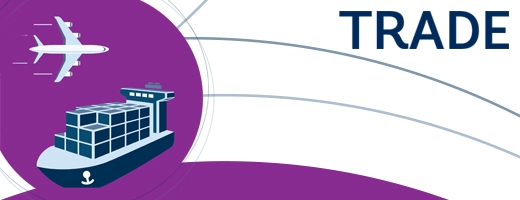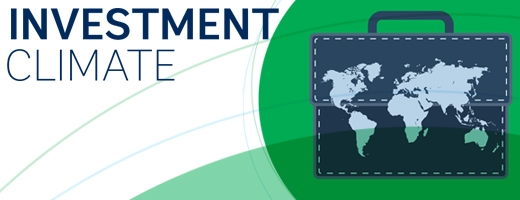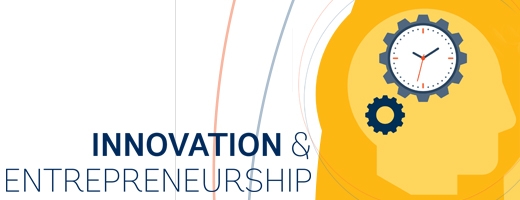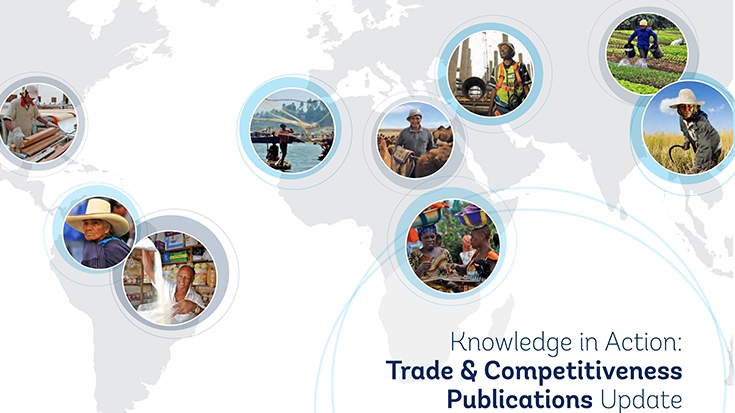
The Competition Policy Advocacy Awards: Changing Mindsets to Transform Markets
This report showcases the experiences and lessons of the World BankGroup’s 2014 contest winners—competition policy authorities that championed successful reforms to address anti-competitive policies and practices through advocacy within their governments and with market stakeholders. It highlights the efforts of agencies from Chile, Colombia, Egypt, Pakistan (winners), El Salvador, Mexico,Moldova, South Africa, and Turkey (honorable mentions). (2014)
Connecting to Compete 2014: Trade Logistics in the Global Economy
Jean-François Arvis, Daniel Saslavsky, Lauri Ojala, Ben Shepherd, Christina Busch, and Anasuya Raj
In its fourth edition, this report features the Logistics Performance Index (LPI), which measures on-the-ground efficiency of trade supply chains, or logistics performance. The 2014 edition covers 160 countries. (2014)
The Eurasian Connection: Supply Chain Efficiency along the Modern Silk Route through Central Asia
Cordula Rastogi and Jean-François Arvis
This study explains how supply chain fragmentation remains a serious obstacle to economic development of Central Asia and to Eurasian integration more generally. It provides a comprehensive assessment of the various factors that yet impede supplychain integration, and based on this assessment, provides an insightful set of recommendations. (2014)
Does What You Export Matter? In Search of Empirical Guidance for Industrial Policies
Daniel Lederman and William F. Maloney
Does the content of what economies export matter for development? And, if it does, can governments improve on the export basket that the market generates through the shaping of industrial policy? This book considers these questions by reviewing relevant literature and taking stock of what is known from conceptual, empirical, and policy viewpoints. (Spanish edition, 2014)
The Global Trade Slowdown: Cyclical or Structural?
Cristina Constantinescu, Aaditya Mattoo, Michele Ruta
This paper focuses on the sluggish growth of world trade relative to income growth in recent years. The analysis uses an empirical strategy based on an error correction model to assess whether the global trade slowdown is structural or cyclical. (2015)
How to Sustain Export Dynamism by Reducing Duality in the Dominican Republic
This report analyzes export competitiveness in the Dominican Republic drawing from the Trade Competitiveness Diagnostic methodology (Farole and Reis, 2012). It finds that Dominican exports fare well—in terms of performance, sophistication, and survival in special economic zones—and identifies main challenges. (2015)
Making Global Value Chains Work for Development
Daria Taglioni and Deborah Winkler
This publication provides a framework, analytical tools, and policy options. It shows why global value chains (GVCs) require fresh thinking. It presents a methodology for quantifying the extent of a country’s participation in GVCs, based on available data. It also proposes a strategic framework to guide policymakers in identifying the key objectives of GVC participation and development and in selecting suitable economic strategies to achieve them. (forthcoming)
Improving Trade and Transport for Landlocked Developing Countries: A Ten-Year Review
World Bank Group and UN-OHRLLS
This publication provides a comprehensive 10-year review in order to assess the progress made in improving access of landlocked developing countries to global markets, identify the remaining challenges these countries face, and present improved and innovative ways to overcome them. This publication is based on the practical knowledge from implementing the Almaty Program policies, shared by both the World Bank Group and the United Nations. (2014)
Regulatory Assessment Toolkit: A Practical Methodology for Assessing Regulation on Trade and Investment in Services
This toolkit provides guidance on how to assess and reform the regulatory policies of service trade industries. It can help government officials evaluate whether the regulatory framework addresses market failures, achieves public interest goals in an efficient manner, and promotes the development of an efficient domestic services market. (2014)
The Role of Trade in Ending Poverty
World Bank Group and World Trade Organization
Marcus Bartley Johns (WBG), Paul Brenton (WBG) and Roberta Piermartini (WTO)
This report discusses how trade will make an essential contribution to ending extreme poverty by opening up new opportunities for jobs; lowering prices for products consumed by the poor; improving access to external markets for the goods that the poor produce; and bringing about structural changes in the economy as export sectors expand and increase employment of low-skilled workers. (forthcoming)
Trade Policy and Food Security: Improving Access to Food in the Wake of High World Prices
Ian Gillson and Amir Fouad
The issue of food security has been thrust further into the public spotlight with the rise of real food prices in recent years. There is no global food shortage: the problem is one of moving food, often across borders, from surplus production areas to deficit ones at prices that low-income consumers in developing countries can afford. Trade can be an excellent buffer for domestic fluctuations in food supply. (2015)
Trade and Transport Corridor Management Toolkit
Charles Kunaka and Robin Carruthers
This toolkit synthesizes the experiences of the World Bank and other development agencies in assessing, designing, implementing, and evaluating the impact of trade and transport corridor projects. It saves project developers the task of looking for the best available tools and ensures greater consistency to facilitate comparison and benchmarking. (2014)
Trading Away from Conflict: Using Trade to Increase Resilience in Fragile States
Massimiliano Cali
This report analyzes the extent to which trade affects the risk of conflict by mapping and empirically testing the channels through which trade may affect conflict and political stability, using data from more than 120 developing countries and in-depth case studies. It recommends policies for fragile and conflict-affected states. (2015)
Valuing Services in Trade: A Toolkit for Competitiveness Diagnostics
Sebastián Sáez, Daria Taglioni, Erik van der Marel, Claire H. Hollweg, and Veronika Zavacka
Services are a key input in countries’ trade competitiveness, as well as a new source of trade diversification. This toolkit provides a framework, guidelines, and set of practical tools to conduct a thorough analysis and diagnostic of trade competitiveness in the services sector with a methodology that sheds light on a country’s ability both to export services and improve its export performance through policy change. (2014)

Africa Competitiveness Report 2015
World Economic Forum, World Bank, African Development Bank, Organisation for Economic Co-operation and Development
This report provides detailed competitiveness profiles for the 40 African countries included in the World Economic Forum’s Global Competitiveness Index. It provides country-specific context and highlights the unique challenges facing economies. Africa’s best path forward, according to the report, is to turn high growth into sustainable and inclusive growth by raising productivity across all sectors of the economy and creating quality employment. (2015)
East African Common Market Scorecard 2014
This report assesses progress toward the development of a common market in capital, services, and goods across the Partner States of the East African Community (EAC)—Burundi, Kenya, Rwanda, Tanzania, and Uganda. Focusing on how each EAC Partner States’ laws and regulation conform to their commitments to the EAC Common Market protocol, the report reviews 683 laws and regulations relevant to the common market (124 in capital, 545 in services and 14 in goods) and several legal notices, reports, and trade statistics. (2014)
Integrating Qualitative Methods into Investment Climate Impact Evaluations
Alejandra Mendoza Alcántara and Michael Wolcock
This paper summarizes some of the key principles and practices underpinning mixed methods evaluations in development, highlights some notable examples of how such work has been conducted (and the particular contributions it has made), and offers some guidelines for those seeking to increase the sophistication and utility of qualitative methods in the evaluation of investment climate reforms. (2014)
Investment Climate Reforms and Job Creation in Developing Countries: What Do We Know and What Should We Do?
Aminur Rahman
This paper reviews the literature on the role of investment climate reforms in job creation. It finds that the current landscape of employment and private sector activity in developing countries indicates a number of potential channels through which investment climate reforms can positively affect job creation. However, rigorous empirical evidence is scarce, and most of the relevant studies focus on business entry reforms. (2014)
The Little Data Book on Private Sector Development 2015
This resource provides reliable crosscountry data on aspects of private sector development. It includes indicators on the economic and social context, the investment climate, private sector investment, finance and banking, and infrastructure for each of the World Bank member countries and other economies with populations of more than 30,000. (2015)
New Voices in Investment: A Survey of Investors from Emerging Countries
Laura Gómez-Mera, Thomas Kenyon, Yotam Margalit, José Guilherme Reis, and Gonzalo Varela
One of every three dollars invested abroad in 2012 was originated in multinationals from developing countries. This study sheds light on the characteristics, motivations, strategies, and needs of emerging market investors, and it identifies differentiating factors among them that are associated with investment decisions. (2015)
Making Foreign Direct Investment Work for Sub-Saharan Africa: Local Spillovers and Competitiveness in Global Value Chains
Edited by Thomas Farole and Deborah Winkler
This book presents the results of a study drawing on field research in eight countries (including five in Sub-Saharan Africa) over three sectors: agribusiness, apparel, and mining. It summarizes the results of this analytical work and discusses their implications for policymakers hoping to harness the power of FDI for greater development outcomes. (2014)

Comparative Analysis of Certain Requirements of Food Legislation in the European Union and the Customs Union of Russia, Belarus, and Kazakhstan
Food safety standards are a major driver of food production and trade. This report is intended to help guide food business operators and public authorities engaged in reforming national food safety systems in evaluating their capabilities and meeting European Union legal requirements. (forthcoming)
Food Safety Toolkit
This nine-module toolkit is a step-by-step guide to help practitioners scope and design investment climate projects that have a food safety component. It aims to empower reformers with a set of tools, and help them assess market potential, build capacity, and assist in mitigating barriers to development in food safety. (2014)
Getting Financed: 9 Tips for Community Joint Ventures in Tourism
World Bank Group and World Wildlife Fund
This guide provides nine tips for all actors involved in this arena—including governments, the private sector, communities, banks, and nongovernmental organizations—to reduce risk and greatly improve joint ventures’ access to commercial finance. (2014)
Low-Carbon Zones: A Practitioner’s Handbook
This handbook draws heavily on the lessons learned from the low-carbon zones project in Bangladesh, one of the first such initiatives undertaken by a lower-income country. The project sought to develop an approach to transform existing old-style export processing zones into more environmentally friendly lowcarbon zones. (2014)
Investment Promotion: A Guide to Investor Targeting in Agribusiness
This toolkit serves as a guide to help project leaders in working with client governments to attract concrete agribusiness investments that create jobs, reduce poverty, and develop value chains in an environmentally and socially sustainable way. It provides a step-bystep guide for developing and executing targeting campaigns and practical tools for implementation. (2014)
Public Research Organizations and Agricultural Development in Brazil: How Did Embrapa Get It Right?
Paulo Correa and Cristiane Schmidt
Embrapa, one of the government’s initiatives to address Brazil’s stagnant agriculture sector and food scarcity, has succeeded in adapting, creating, and transferring technologies to Brazilian farmers for the past 30 years, helping transform Brazil into one of the world’s largest food exporters. (2014)
Tourism in Africa: Harnessing Tourism for Growth and Improved Livelihoods
Iain Christie, Eneida Fernandes, Hannah Messerli, and Louise Twining-Ward
This report examines tourism in Africa comprehensively and regionally and recommends practical, evidencebased measures enabling the sector’s economic and development power. This gives new impetus to the continent’s development progress by leveraging tourism in pursuit of lasting poverty alleviation and the creation of significantly more jobs and opportunities for all Africans. (2014)

Building Competitive Green Industries: The Climate and Clean Technology Opportunity for Developing Countries
This report offers insight to policy makers and other stakeholders seeking to develop competitive green industries in developing countries. It provides an overview and estimate of the market opportunity for climate and clean technology business in developing countries over the coming decade. (2014)
The Business Models of mLabs and mhubs—An Evaluation of infoDev’s Mobile Innovation Support Pilots
This report discusses the business models of Mobile Application Laboratories (mLabs) and Mobile Social Networking Hubs (mHubs). mLabs are specialized mobile app business incubation and acceleration service providers; mHubs focus on mobile tech community building by convening stakeholder groups at informal gatherings. (2014)
Doing, Learning, Being: Some Lessons Learned from Malaysia’s National Transformation Program
Charles Sabel and Luke Jordan
This paper reports the findings of a study examining Malaysia’s Performance Management and Delivery Unit, an institutional innovation for making, monitoring, and revising ambitious plans for reform involving coordination between public and private sectors and among government entities. (2015)
Growing Food, Products and Businesses
Ten country case studies, now available to download, highlight best practices and lessons learned from across the globe for developing and sustaining agribusiness incubators. (Updated case studies, 2014)
Enhancing Access to Finance for Technology Entrepreneurs in Southern Africa
This report examines the financing gaps for early stage and growth that high-growth technology entrepreneurs are facing in the information and communication technology, climate technology, and innovative agribusiness sectors in Zambia and Mozambique, with a more regional review of Namibia and Botswana. (2014)
Mobile at the Base of the Pyramid: Ghana, Mozambique, Nigeria, Zambia Summary Report
This report assesses existing mobile application (app) business models targeted at, or suitable for, people living at the base of the pyramid. The report addresses specific pain points for app developers and provides practical, actionable advice specific to Ghana, Mozambique, Nigeria, and Zambia. (2014)
Public Expenditure Reviews in Science, Technology, and Innovation
Paolo Correa
This guidance note aims to help countries assess the quality of public spending on these areas through a framework and analysis that yield actionable measures combining institutional and policy reforms with strategic investments. (2014)
Supporting Growth-Oriented Women Entrepreneurs: A Review of the Evidence and Key Challenges
Xavier Cirera and Qursum Qasim
This note reviews the outcomes of programs supporting female growth entrepreneurs and draws lessons from available evidence to inform the design of more effective programs. (2014)





